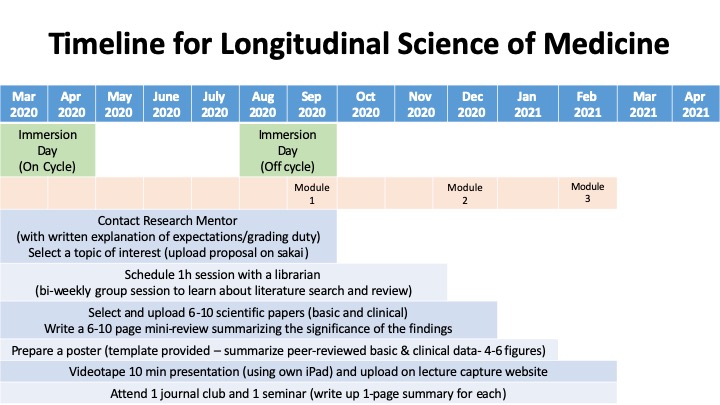Research Mentor’s
Science is the intellectual and practical activity encompassing the systematic study of the structure and behavior of the physical and natural world through observation and experiment. The overarching goal of the Science of Medicine Selective is to enable each medical student to situate and contextualize their individual clinical work within the larger world of medical research and treatment breakthroughs. For the purposes of the Science of Medicine Selective, we have defined Science broadly to include not only the traditional “basic sciences” such as biology, biochemistry and others, but have also included clinical & qualitative research, implementation & dissemination of findings, and research ethics. We also include other important aspects of science such as funding, literature search, and critical reading of peer-reviewed articles.
Given the lack of physician scientists in the current medical research pipeline, the course directors are enthusiastic about the chance to encourage medical students in research related to their areas of interest. Research mentors will play a key role in helping them train the next generation of physician scientists.

Research mentors will guide students through the selection of a relevant topic/clinical question that includes basic and clinical research components. Mentors are encouraged to advocate for new and upcoming topics that they themselves want to learn about (i.e., mutual learning experience). To give you a few examples: “development and use of new gene-editing tools for gene therapy” or “discovery and testing of novel therapeutic antibodies in cancer treatment” or “advancement of stem cell therapy for joint pain”. In the first months, students will work at selecting peer-reviewed manuscripts (6-10 papers) on their topic with the help of the Health Science Librarians and write a summary in the form of a mini-review. Mentors will give feedback on the literature selection and summary of findings. Depending on quality, written reviews could be used for submission to a journal or a grant but students should be included as co-authors for publications. Following this assignment, students will create an electronic poster by extracting the most relevant findings of these manuscripts and creating a “scientific story” from hypotheses to conclusion. Finally, the student will prepare and give a 10 min presentation on their selected topic that will be recorded for grading purposes. The course directors will grade the final presentation, though encourage mentors to provide feedback to the student.
In addition to their own presentation, students are asked to attend one journal club and one scientific seminar. Mentor’s guidance on what journal club and seminar to attend will be key to insure optimal learning. Students are also required to complete research-related learning modules, such as CITI training, etc.
Course Directors
Camille Ehre, PhD
Assistant Professor
E-mail
Christine Kistler, MD, MASc
Assistant Professor
E-mail
Selective Coordinator
Megan Goldsby
E-mail